Running
Snob
Running
Snob
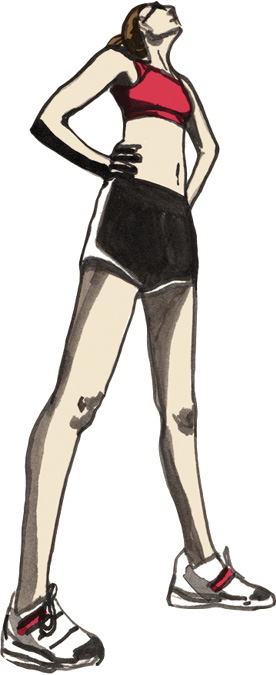
Kevin Nelson


An imprint of Globe Pequot
Distributed by NATIONAL BOOK NETWORK
Copyright 2017 by Kevin Nelson
Illustrations by Meredith Nelson
All rights reserved . No part of this book may be reproduced in any form or by any electronic or mechanical means, including information storage and retrieval systems, without written permission from the publisher, except by a reviewer who may quote passages in a review.
British Library Cataloguing in Publication Information Available
Library of Congress Cataloging-in-Publication Data Available
ISBN 978-1-4930-2624-1
ISBN 978-1-4930-2625-8 (e-book)
 The paper used in this publication meets the minimum requirements of American National Standard for Information SciencesPermanence of Paper for Printed Library Materials, ANSI/NISO Z39.48-1992.
The paper used in this publication meets the minimum requirements of American National Standard for Information SciencesPermanence of Paper for Printed Library Materials, ANSI/NISO Z39.48-1992.
Printed in the United States of America
Be smart, have fun, live life with flair.
The Snobs maxim
Introduction
Marathoner Rachel Toor delightfully confesses to something that many runners may think privately but few would dare say publicly. Im a runner, she says. Not only that, Im a snob, if being a snob means that I value excellence.
Jeff Galloway, the popular marathon coach and a former Olympian in the 10,000 meters, is the last person one would accuse of being a snob. His coaching philosophy is centered on the idea that anyone with the courage to start a marathon has the ability to finish it, even, as he puts it, former couch potatoes.
And once they do, once they cover those hallowed 26.2 miles, those one-time couch potatoes enter into an elite realm, in Galloways view. To reach the finish line in a marathon is to enter an elite group; only about one-tenth of 1 percent of the population does it, he says.
Now, lets imagine a marathon in progressNew York. Mile 4, Fourth Avenue, Brooklyn. Some runnersfirst-timers, all seeking to join those elite ranks Galloway refers tosuddenly stop running and start walking. They walk for a while and then start running again, taking another walk break a few miles later. They do this throughout the race, and they do it all the way to Central Parkwalking and running, following the methods that Galloway teaches on how first-timers can finish a marathon.
As these first-timers exult in triumph, other runners, battle-hardened veterans of the sport, are not so pleased. One of them is acclaimed Japanese writer and novelist Haruki Murakami, a veteran of New York and other marathons, as well as the 62-mile Lake Saroma Ultramarathon in his homeland. While supporting the idea of people exercising more and getting into better shape, Murakami feels strongly that if you walk during a marathon, it puts you into a different and lesser category than someone who runs through Mile 4 and all the other miles. Yes, you have covered the distance around the five boroughs and good for you, but you have not run it. Murakami claims to have never walked during a marathon and vows he never will.
Three runners, all different. Yet each of them has views that can be characterized as snobbish or elitist. But they are merely expressing their own personal standards and values, and those standards and values help them form judgments and have opinions and provide the foundation upon which they live their lives. Whats wrong with that?
Plenty, if you ask Hollywood. Look at McFarland USA , the 2015 Disney movie based on a true story about a Central Valley high school cross-country coach (played by Kevin Costner) whose underdog team of Hispanic runners overcomes the long odds against them and wins the California state championship. Naturally the teams they beat are composed of snobssnotty, vaguely sinister prep school boys. If Draco Malfoy had gone out for track, he wouldve been running against McFarland.
Although many of those who make and star in movies live in gated enclaves in Beverly Hills, earn six-figure incomes, and send their children to the best private schools, you see this same basic script over and over. Need a villain? Cut to the snob, the elitist, the person of privilege. Snobs look down their noses at outsiders, the others, those who do not belong to their clique.
The most popular running movie ever made, Chariots of Fire whose theme song is, to borrow Steve Dollars phrase, the ultimate ear worm; once you hear it, it burrows into your brain to take up permanent residencefollows this standard theme, even though its two main characters attend Cambridge University, which is not exactly, you know, McFarland High. One of the characters (based on the real-life Eric Liddell) is Scottish and champions Scottish independence as well as his devout Christian beliefs, while the other main character (also based on a real person, Harold Abrahamsboth he and Liddell won gold medals in the sprints in the 1924 Summer Olympics)is Jewish and refuses to buckle under to the anti-Jewish attitudes and actions of Cambridge authorities. Standing in the way of both men are upper-crust English snobs (one of whom is wonderfully played by Sir John Gielgud, who was probably a snob in real life and proud of it).
Ironically, given that both these movies are about running, many people regard running itself as an elite activity. Indeed it is. The Harold AbrahamsEric Liddell of our time is the charismatic and gregarious Jamaican sprinter Usain St. Leo Bolt. He has a box full of gold medals and has run the 100 meters in 9.58 seconds and the 200 meters in 19.19 seconds, both world records. That, my friends, is as elite as it gets.
Theres nothing wrong with being an elite, in our view, as long as you have a good time and a sense of humor about it, like the dashing, smiling, posing, high-strutting Mr. Bolt. Thats our goal here at Running Snob too. Flip back to our table of contents page and youll see what were up to: stories and anecdotes, humor, satire, informative lists aplenty, entertaining trivia, tips and advice, inspirational quotations, interactive quizzes and games, and lots of stuff about the grand races and personalitiesJoan Benoit Samuelson, Meb Keflezighi, Fred Lebow, Paula Radcliffe, Steve Prefontaine, Galen Rupp, Bill Rodgers, Des Linden, Frank Shorter, Neanderthal Man, and Forrest Gumpof the sport.
Runners arent better than everyone else. They are for the most part in better shape, though. Lets have some fun.
Kevin Nelson
Chapter One
The Community of Running
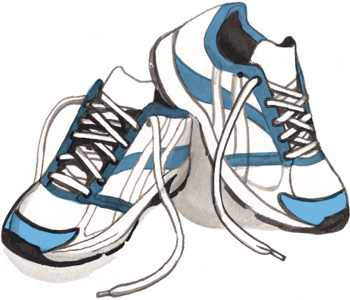
Forget all that loneliness of the long distance runner stuff. Running isnt lonely anymore, at least not as lonely as it used to be. Running is community and family. It is clubs, groups, teams. It is people coming together to have fun and financially support other people who may need their help. These and other topics are explored in this chapter.
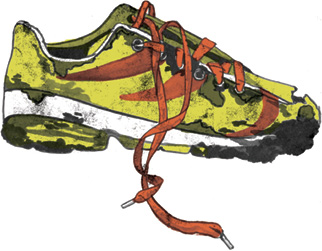
Running is the best.
Its the universal sport. But why?
Next page
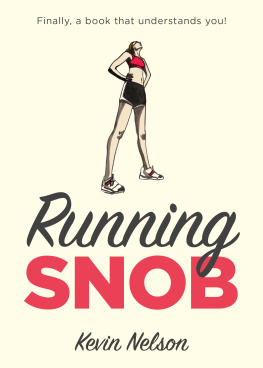
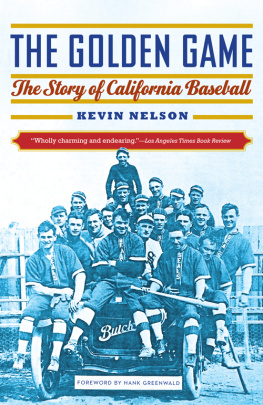

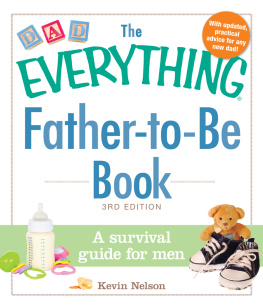

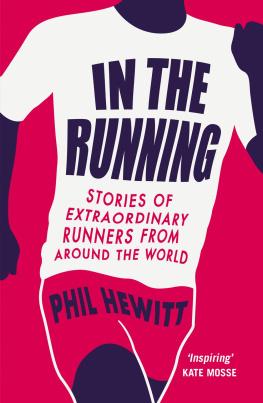
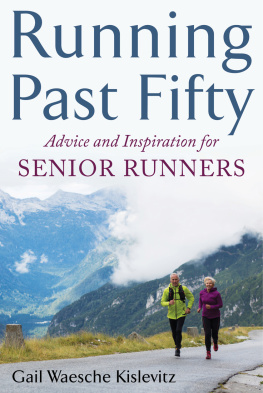
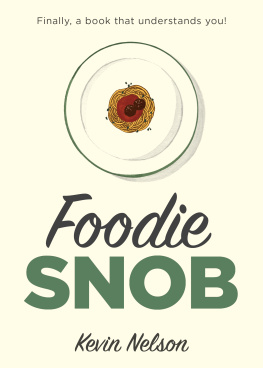
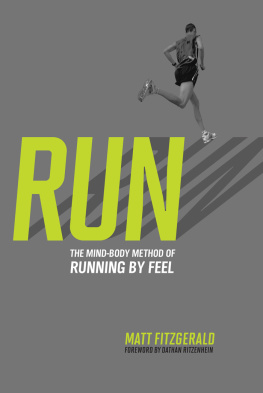
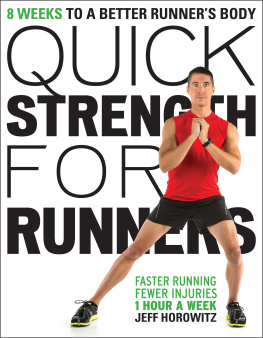
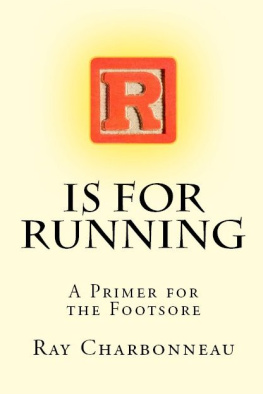
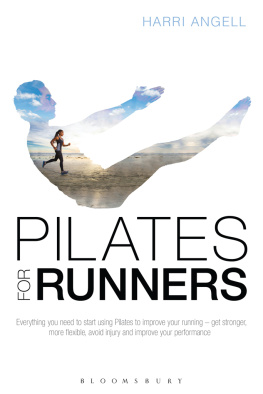
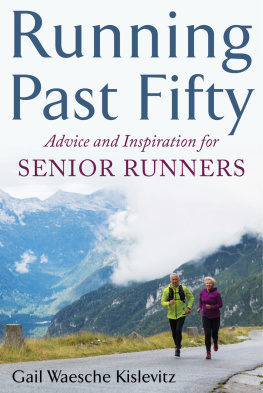
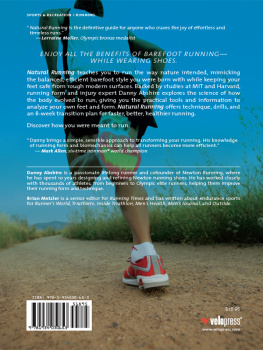
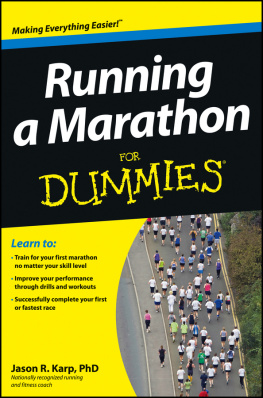



 The paper used in this publication meets the minimum requirements of American National Standard for Information SciencesPermanence of Paper for Printed Library Materials, ANSI/NISO Z39.48-1992.
The paper used in this publication meets the minimum requirements of American National Standard for Information SciencesPermanence of Paper for Printed Library Materials, ANSI/NISO Z39.48-1992.
